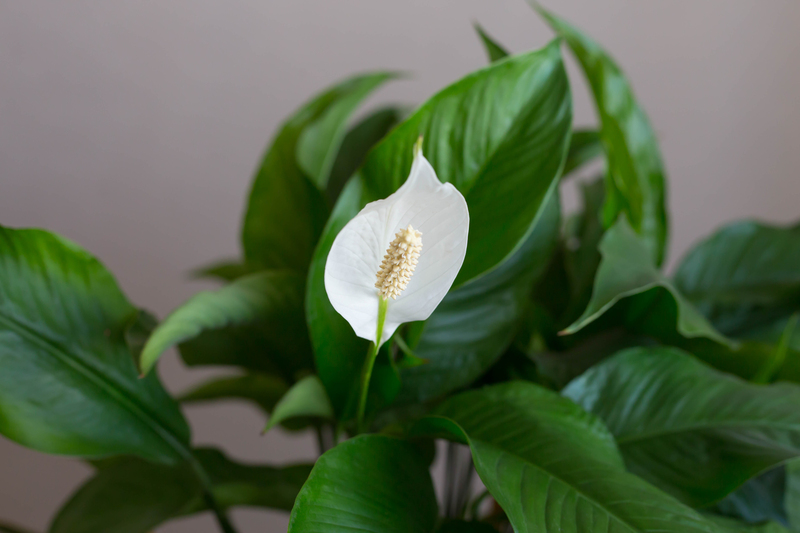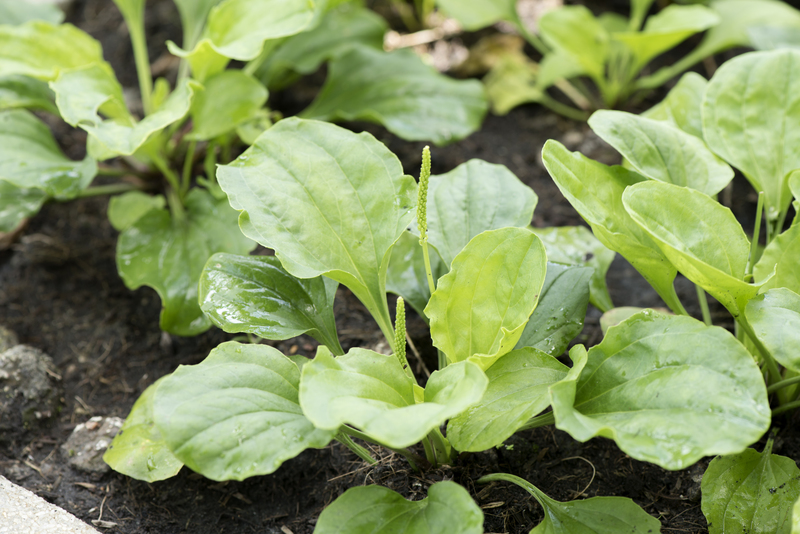Effective Gardening: 3 Tips to Control Weeds
Posted on 25/08/2025
Effective Gardening: 3 Tips to Control Weeds
Maintaining a lush, vibrant garden is a dream for many homeowners and enthusiasts. However, one of the biggest obstacles faced by even seasoned gardeners is dealing with unwanted, persistent weeds. In this comprehensive guide, we'll share three highly effective gardening tips to manage and control weeds, ensuring your plants thrive and your garden remains aesthetically pleasing.
Understanding the Importance of Weed Control
Why is weed control essential in gardening? Weeds not only compete with your plants for water, nutrients, and sunlight, they can also become havens for pests and diseases. Over time, unchecked weed growth can smother your cultivated plants, reduce crop yields, and diminish the beauty of your landscape.
- Reduced competition: Effective weed management helps your plants grow stronger by minimizing competition for precious resources.
- Better plant health: Less stress from weeds means your flowers and vegetables can reach their full potential.
- Prevents pest and disease spread: Weeds often harbor insects and plant pathogens that can spread to your desired plants.
- Aesthetics: A weed-free garden simply looks more beautiful and well-maintained.

3 Proven Tips for Effective Weed Control in Gardens
Let's explore the top three tips to keep your garden weed-free and flourishing. Whether you're a seasoned horticulturist or a weekend gardener, these methods will help you manage weeds with confidence.
Tip 1: Mulching - The Gardener's Secret Weapon
Mulching is one of the most effective and natural ways to control weeds in gardens. When properly applied, mulch acts as a barrier, preventing sunlight from reaching weed seeds, thereby inhibiting their growth.
- What is Mulching?
Mulch can be any material spread over the surface of your garden beds. It includes organic types like shredded leaves, straw, wood chips, bark, grass clippings, and compost, as well as inorganic options such as black plastic sheeting or landscape fabric. - How Does Mulch Control Weeds?
- Light blockage: Mulch blocks sunlight from reaching weed seeds, halting photosynthesis and preventing germination.
- Physical barrier: A thick layer of mulch makes it harder for weeds to break through to the surface.
- Moisture retention: Mulch retains soil moisture, promoting healthy plant growth but depriving weeds of the "space" to flourish.
How to Apply Mulch Effectively for Weed Control
- Prepare the area: Pull existing weeds and water the soil before adding mulch.
- Apply a thick layer: Spread a 2-4 inch layer of mulch across garden beds. Ensure mulch doesn't touch plant stems directly to avoid rot.
- Replenish periodically: Organic mulches decompose over time. Check your mulch layer every few months and top up as needed for continuous weed suppression and soil health.
Pro tip: Use organic mulches for vegetable gardens to add nutrients to the soil as they break down, but consider landscape fabric under decorative beds for longer-lasting weed prevention.
Tip 2: Regular Hand Weeding and Cultivation
Despite all precautions, some weeds will inevitably sneak into your garden, especially perennial and deep-rooted varieties. Consistent hand weeding is one of the most straightforward--and environmentally friendly--garden weed control techniques.
- Timing matters: The best time to weed is after a rain or watering session, when the ground is soft and roots can be pulled out intact.
- Pull weeds early: Remove weeds when they're young, before they set seed. This drastically reduces future weed problems.
- Use the right tools: Equip yourself with hoes, hand forks, or narrow-blade weeders for different types of weeds and soil conditions.
Proper Weeding Technique
- Start small: Weed regularly, spending just 10-15 minutes a day or a few hours weekly to prevent overwhelming weed infestations.
- Remove the roots: For perennial weeds (like dandelions and thistles), pull out the entire root system to reduce regrowth.
- Avoid tilling deeply: Deep tilling can bring buried weed seeds to the surface, encouraging new growth. Shallow hoeing is more effective for routine upkeep.
Hand Weeding Tips:
- Weed around the base of plants with care to avoid disturbing roots.
- Dispose of weed seeds and roots in the trash (not compost), especially if they are mature or invasive.
Tip 3: Smart Plant Spacing and Ground Cover Plantings
Dense planting strategies naturally suppress weed growth by reducing the amount of bare soil where weed seeds can germinate. By filling your beds with desirable plants or using living ground covers, you shade the soil and crowd out weeds.
- Close plant spacing: Arrange your plants so their mature leaves overlap, leaving minimal space for weeds to grow. This is especially effective with flowers, shrubs, and vegetables.
- Use ground covers: Low-growing, spreading plants such as creeping thyme, sedum, or vinca minor act as living mulch, shading the soil and forming a dense carpet resistant to weeds.
Best Practices for Weed Suppression with Plants
- Choose aggressive ground covers: Select perennial ground covers suitable for your climate and soil for maximum coverage and minimal maintenance.
- Stagger planting times: Include cool- and warm-season plants to ensure coverage throughout the growing year.
- Integrate with mulch: Combine dense planting with mulch around young plants until they mature and fill in the gaps.
Did you know? Many flowering ground covers not only keep out weeds but also add seasonal color and attract pollinators, boosting your garden's biodiversity.
Additional Expert Tips & Tricks for Controlling Garden Weeds
- Solarization: For new garden beds, cover soil with clear plastic during hot months to "bake" and kill weed seeds before planting.
- Edge your beds: Create physical barriers using steel edging or bricks to prevent weeds from spreading from lawns into garden beds.
- Water wisely: Use drip irrigation or soaker hoses to deliver water directly to plant roots, starving weeds in drier soil between rows.
- Avoid letting weeds go to seed: One weed can produce thousands of seeds--timely removal interrupts this cycle.
Safe Use of Herbicides
While organic and manual methods are preferred for home gardens, sometimes a targeted approach using herbicides is necessary--especially for persistent weeds like bindweed or poison ivy. For effective weed management with minimum environmental impact, use:
- Selective herbicides only where needed, avoiding contact with crops and desirable plants.
- Pre-emergent weed killers in early spring, before planting, to minimize seedling emergence.
Always follow product instructions and safety guidelines, and consider organic weed killers for a more eco-friendly approach.

Frequently Asked Questions About Weed Control in Gardens
How often should I weed my garden?
It's ideal to inspect your garden every week or two, pulling weeds while they're small and before they establish deep roots or set seed. Regular attention prevents weeds from becoming an overwhelming problem.
What is the best mulch for controlling weeds?
Organic mulches like shredded bark, straw, and leaf mold are excellent for both weed suppression and improving soil health. For ornamental beds, plastic or landscape fabric covered with mulch can provide season-long protection.
Can I use boiling water or vinegar to kill weeds?
Boiling water and vinegar can be effective on annual weeds growing in paths or cracks but can also harm nearby desirable plants. Use with caution and avoid on established garden beds.
Conclusion: Achieve Effective Gardening with Reliable Weed Control
Effective gardening hinges on your ability to manage and control weeds efficiently. With these three proven tips--mulching, hand weeding, and smart plant spacing--you can cultivate a thriving, weed-free oasis that delights the senses and nourishes your beloved plants. By adopting a proactive mindset and using these techniques, you will save time, reduce stress, and increase the productivity and beauty of your garden with each passing season.
Remember: The key to lasting weed control is persistence. By understanding the habits of weeds and using a combination of strategies, you'll always stay one step ahead--enjoying the rewards of a flourishing, healthy garden that is truly a cut above the rest.
Ready for your best garden ever? Start using these expert tips and watch weeds disappear--your plants (and back) will thank you!
Latest Posts
Designing a Bark-Friendly Backyard for Nature Lovers
Reinvent Your Green Haven: Create Mesmerizing Garden Seating Arrangements
Unleashing the Secrets of Herb Growing

